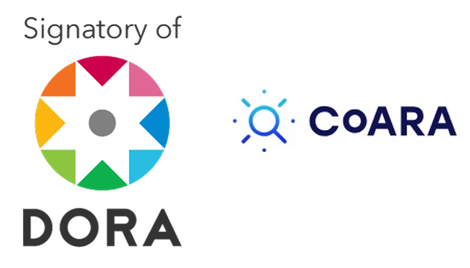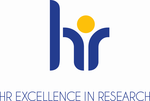Research strategy
Research is the driving force of Ghent University. Boundaries are pushed. Researchers make discoveries that have an impact on society at large. Moreover, the research breathes new life into education and establishes the basis for a forward-looking knowledge society.
Over the course of two hundred years Ghent University has built up a strong scientific reputation. Ghent University invests both in fundamental, high risk science as in applied and socially oriented research. The university is known for its scientific expertise in life sciences and medicine, materials and agricultural science, veterinary medicine, psychology and history, and many more. This university does not just offer a place to singular research strengths but also encourages inter- and transdisciplinary collaboration.
Ghent University's research vision has five strategic objectives:
- Ghent University is actively building a research culture in which openness, integrity, collaboration and impact are central issues
- The Special Research Fund (BOF) is deployed to strengthen the quality and impact of research at Ghent University
- Ghent University invests in talent
- Ghent University watches over the quality and impact of research
- Research is organised and supported in an efficient and high-performance manner
Looking for a concise overview of the research context at Ghent University? Consult the Framework for Good Research Practice.
Responsible research assessment

- Ghent University evaluates in a qualitative and responsible manner.
- Ghent University organizes evaluations in such a way that they stimulate the quality and impact of research, appreciate a diversity of research activities, and promote good research practices. Ghent University values the importance of teamwork and leadership in an academic context. The university also recognizes the diverse roles that researchers undertake within and outside the university. This is reflected in the 'Portfolio of research dimensions' that is offered within the framework of the career and evaluation policy for professorial staff.
- Ghent University uses a thoughtful combination of evaluation methods, criteria and indicators. Quantitative indicators can be used responsibly to evaluate research and researchers.
In order to strengthen its commitment to assess research in a responsible way, Ghent University signed the San Francisco Declaration on Research Assessment (DORA) in 2020 and the European Agreement on Reforming Research Assessment (ARRA) in 2022. As a member of the international Coalition for Advancing Research Assessment (CoARA), Ghent University is developing concrete actions to implement the principles from ARRA.
Integrity and ethics in research
Quality enhancement is pivotal. Research integrity is an important element of this. Ghent University sensitizes its researchers and supports them through:
- sharing knowledge and expertise on the concept of 'research integrity' and related topics
- a diverse range of training courses in the different phases of their careers, with attention for their task as trainer/teacher
- numerous concrete applications such as an elaborated policy on research data management, guidelines for authors and the recognition of contributions to scientific publishing, etc.
- a support network for the handling of questions and complaints with a Commission for Research Integrity as the central body
More information on research integrity
Ethics in research is a multi-layered concept which brings together considerations such as the question on the necessity of certain research, the overall attitude of researchers and the way they approach and/or design their research, the standards for behaviour in a certain discipline, the formal compliance with ethical and legal guidelines and procedures (including requesting and obtaining an ethics approval for a specific research project).
Impact of research: scientific and socio-economic
Ghent University requires its (co-)authors to register and deposit their scholarly publications in Biblio, the academic bibliography and institutional repository. For publications from 2023 onwards, they also need to register in Biblio their linked research datasets published in an external data repository (if any).
Researchers are asked to respect the Open Access policy of their funding organisation (if applicable) and of Ghent University. The University expects that publications are at least accessible within the Ghent University network, and strongly encourages researchers to make them publicly accessible as soon as possible, preferably with an open license, where possible. For scientific journal articles published since 2023, Ghent University in any case adopts an opt-out Open Access policy: the accepted manuscript in Biblio is made publicly accessible after an embargo period, in accordance with Belgian Open Access legislation, unless the researcher explicitly requests an opt-out.
Before their research results are made public, researchers have to take all necessary steps to protect the intellectual property rights resulting from the research.
High quality research does not merely have a scientific/academic impact. Knowledge which is developed at the university must also find its way into society at large. Through value creation of research, be it financially, economically, socially or culturally, academic knowledge provides an added value to society.
HR strategy
As a caring and engaged employer Ghent University promotes a talent-driven HR policy. Specific challenges in this are the improvement of the quality of the scientific career and the provision of new career opportunities.
Ghent University is a signatory of the European Charter for Researchers and the Code of Conduct for the Recruitment of Researchers. This endorsement is further strengthened by an integrated HR Strategy (HRS4R).
The European Commission awarded Ghent University the HR Excellence in Research label (in 2014, renewed – after positive evaluation – in 2020).
Support of doctoral researchers
The Doctoral School is an important partner in the support of doctoral researchers at Ghent University. They offer an extensive array of training courses. their three-fold mission is:
- to increase the international and social value of the doctorate (both for the academic and non-academic labour market)
- to enhance the support of doctoral researchers during their research process
- to strengthen the quality culture in (doctoral) research
Ghent University’s Quality framework for doctoral education ensures quality assurance from the entry point to the completion of the doctoral process. It is a guiding tool composed of 10 building blocks that remain the framework for further plans, actions, evaluations and improvements of the doctoral process.
Support of postdocs
The Postdoc Talent Management focuses on the career perspectives of postdoctoral researchers. Ghent University creates awareness with postdoc researchers of all fields of science about their career and offers a wide array of tailor-made professional development activities.
Ghent University not just looks towards an easy transition from postdoc to professor but also invests in creating pathways to non-academic careers.
European research and innovation policy
Ghent University follows up on all the developments in the European Research Area (ERA).
We help the European Commission to shape policy in a number of policy areas by participating in working groups, conferences and public consultations. In addition, by collaborating with officials from the European Commission and the Permanent Representation of Flanders/Belgium to the European Union and members of the European Parliament, Ghent university is an active contributor to the European research and innovation policy. Ghent University regularly publishes, provides input on or supports position papers and public statements.
